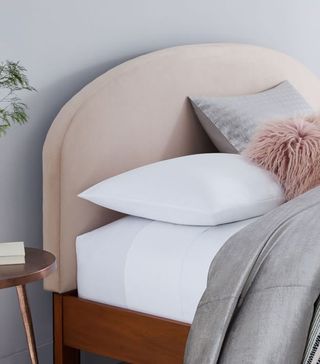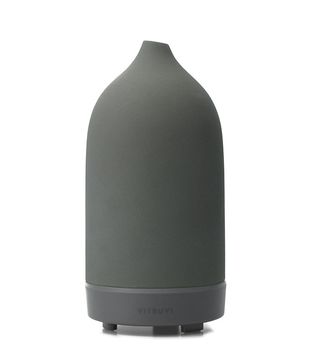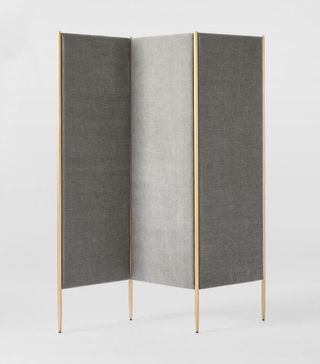Want Better Sleep? These 10 Feng Shui Bedroom Tips Might Help
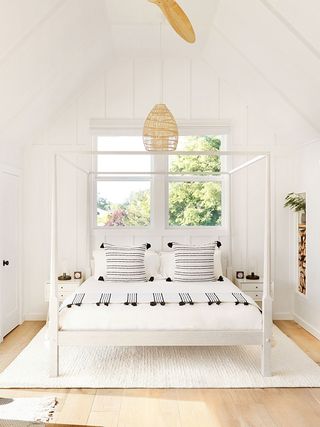
Those who practice the ancient Chinese art of feng shui believe the way you set up your home can affect its energy and balance. If your space is arranged in a harmonious way, it could have a good effect on your own energy and life, too. Whether you believe in it or not, feng shui does make sense when you think about it. In its simplest form, it's making sure you're setting up a space that you can really live in and prosper in.
If you're looking to explore the practices and rules of feng shui, one good place to start is the bedroom. It's where you start and end your days, so if you believe in the tenets of feng shui, making sure the space is set up correctly can help how you sleep, how ready you are to face the day, and how you at peace you feel at home.
"Good feng shui in the bedroom is important because it helps create a healthy space to nourish one's energy," says Rodika Tchi, a feng shui consultant and author of Feng Shui for Healing. "It teaches how our well-being is connected to the space that we live in, and the first space that we deeply depend upon is the bedroom (we spend many hours there in the most vulnerable states of either sleep, relaxation or sexual healing). If the bedroom has negative energy, this will inevitably influence the lives and the well-being of people who live there in a negative way."
So how do you start redesigning and rearranging your space with feng shui in mind? Follow these tips:
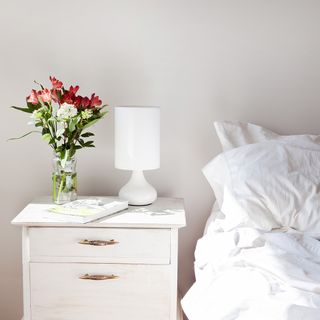
Feng shui consultant Jessie Kim advises that your bed should not be in line with the door, or under a window. In feng shui, it is believed that energy enters through the door, so redirecting this energy can help you sleep better.
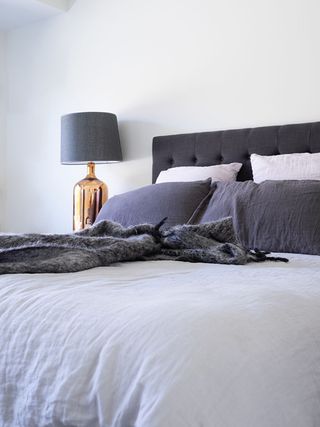
Kim says the best placement for a bed is "having the headboard against a solid wall, away from the door and the windows." The thinking is that when you sleep, you need support to energize and recharge, which a solid wall and headboard both give.

Including the frame. "I do recommend having natural material bed frames," Kim says. "Wood and fabric. You want to avoid metal-frame furniture—metal conducts electricity, and over time the metal frame will magnetically charge and create a polarity that can have negative effects."

Tchi advises to avoid any tech distractions at all costs to get quality rest. Kim adds, "Even when the devices are turned off the reflections of the screen still act like a mirror and that blinking light on your phone will wake you up if you by chance you see it in the middle of the night. If you have to have your devices in your bedroom then make sure to turn off all data and cover up the screens when you are going to bed."

Mirrors aren't recommended in the bedroom. "You shouldn't have mirrors in the bedroom—mirrors are always working, always reflecting; mirror energy is like water, always moving," Kim says. "You don't want that much active energy in your bedroom, and even facing your bed. It's like sleeping on the beach with waves constantly hitting you all night long." If you do have to have a mirror in your room, make sure it doesn't face your bed. Some furniture has built-in mirrors, or you might have mirrored closets, for those, Tchi recommends facing them away from you at night if they can be adjusted, or even covering it up with freestanding art, a screen, or even a flower arrangement.
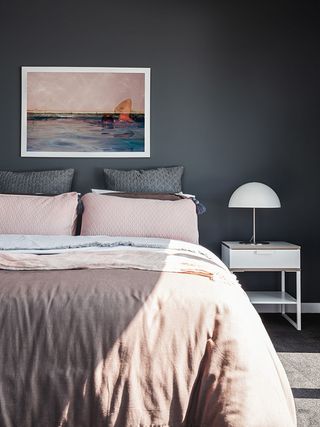
Kim recommends choosing art that is calming. And Tchi adds you should pick pieces that speak to you—she suggests art motifs featuring pairs (of people or non-ferocious animals) and avoiding any aggressive, violent, sad, or lonely images.
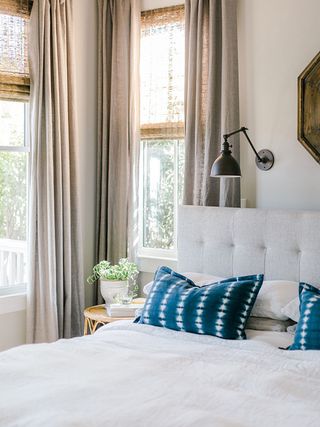
This helps whether or not you believe in the principles of feng shui. A cluttered space can mean more stress, which in turn means bad-quality sleep. "It does not help with a restful night of sleep, whenever you are in a messy room, and always thinking in the back of your mind, I should clean up my room, or I don't like how it looks, etc. You want to be in your room and feel restful, not stressful," Kim says.
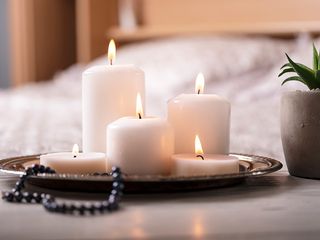
Tchi suggests adding candles or Himalayan salt lamps to your space, which can bring a warm, glowing, and nourishing environment.
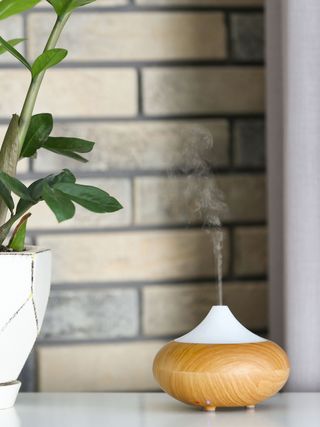
In general, we know that scent can create a mood—aromatherapy is used by some people to calm and de-stress. The same idea is used in feng shui, as Tchi recommends diffusing favorite essential oils to refresh the energy of the room.
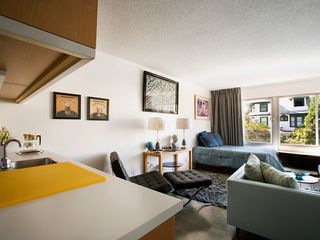
"If you live in a studio with an open floor plan, you should see if you can get a room divider, or maybe hang a curtain on the ceiling so you can close it at night to separate your bed area," Kim suggests. This might be more conducive to sleep.
Disclaimer
This article is provided for informational purposes only and is not intended to be used in the place of advice of your physician or other medical professionals. You should always consult with your doctor or healthcare provider first with any health-related questions.
Sarah is lifestyle writer and editor with over 10 years of experience covering health and wellness, interior design, food, beauty, and tech. Born and raised in Los Angeles, she attended New York University and lived in New York for 12 years before returning to L.A. in 2019.
In addition to her work on THE/THIRTY and Who What Wear, she held editor roles at Apartment Therapy, Real Simple, House Beautiful, Elle Decor, and The Bump (sister site of The Knot).
She has a passion for health and wellness, but she especially loves writing about mental health. Her self-care routine consists of five things: a good workout, “me” time on the regular, an intriguing book/podcast/playlist to unwind after a long day, naps, and decorating her home.
